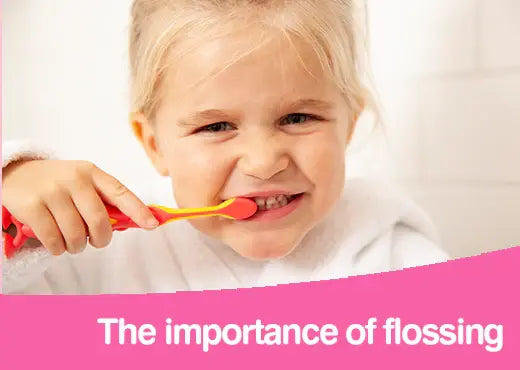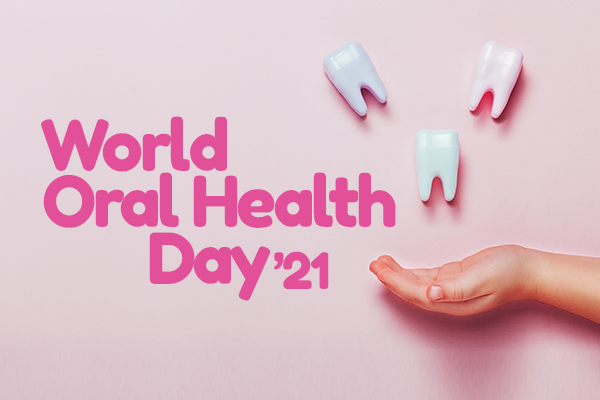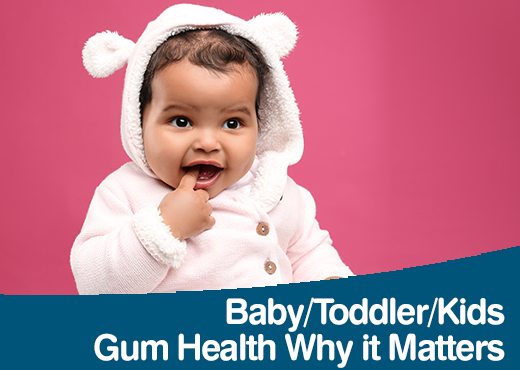Xylitol Articles

At brushbaby, we add xylitol into the majority of our kids toothpaste and teeth wipes as it helps fight tooth decay and is also what makes toothpaste for children taste so yummy and sweet! Continue reading our interesting articles to find out why you should always ensure your child’s toothpaste always contains xylitol…
Flossing: is it a waste of time and money?
Helen Rumbelow – The Times Health Section November 21 2012 12:01AM
Helen Rumbelow has a good floss before embarking on Ellie Phillips’s teeth-cleaning regime.
For years, dentists have ordered us to floss. Is it a waste of time? Helen Rumbelow meets the woman behind a revolution.
Earlier this year David Sedaris, the American humourist, took as his subject European dental care. He had, he wrote in The New Yorker, proudly told his French dentist he had been flossing every night. “Hey,” she retorted, “enough with the flossing. You have better ways to spend your evenings.”
To an American audience this was a cue for big laughs. Big, white, toothy laughs, from the nation that invented dental floss and went on to elevate flossing to the status of semi-religious devotion — they use nearly 5 million kilometres of it a year. Americans don’t flagellate themselves, they attack their teeth with nylon wire until they sting and bleed. And now, increasingly, so do we.
I laughed at the Sedaris piece myself, probably even while flossing. Probably even in bed, for you do not know true intimacy until you have flossed in the presence of your loved one. According to Clint Eastwood’s former partner Sondra Locke, in her book The Good, the Bad and the Very Ugly, the Hollywood star would whisper, “Sweetie, did you floss?” as a prelude to sex. But in my bathroom floss digs into my mouth like a Jew’s harp. The song it plays is not of love, as unspeakable objects are exhumed from my gums. Flossing doesn’t feel good, it is drooly and disgusting, but it feels like the right, dutiful, morally superior thing to do.
We all know we should floss, even if we don’t. The sight of a floss packet triggers a secular guilt. But what if we don’t need to floss? What if the reproachful sermon of every dentist you have ever known, to floss more, floss harder, was wrong? What if we looked back on ourselves 50 years from now and laughed at our attempts to clean our teeth by wedging bits of string between them?
Well, I discovered a dentist who believes just that. My first instinct when Ellie Phillips cheerfully told me, “Oh, I haven’t flossed in 20 years, and I’ve never taught any of my children to either,” was of utter shock. Are dentists even allowed to say this? Don’t they get struck down by some flossing god? My second thought was that she was obviously a kook, not aided by the fact that her book is somewhat jauntily entitled Kiss Your Dentist Goodbye. But it turns out that Dr Phillips was one of the first female dentists trained by Guy’s Hospital in London in the 1960s. On her first day in the job in a school clinic she faced a row of 20 children with teeth to be extracted — “strained little faces looked at me with round moist eyes”.
She vowed then to devote herself to preventative dentistry. Her work took her to America, where she is now based; her book is endorsed by Richard Carmona, the former Surgeon General of the United States. And its 21 pages of footnoted references to scientific studies lead to astounding conclusions: first, that flossing is useless at preventing tooth decay.
Yes, you heard that right. In all the reviews of flossing studies, no amount of flossing — daily, twice daily — has shown any reduction in your chances of tooth decay. There was only one exception: in which schoolchildren received a professional 15-minute flossing from a hygienist five days a week for nearly two years. “Self-flossing,” researchers concluded, “failed to show an effect on tooth decay”. In terms of gum health, some studies are more positive, but many show that flossing does not improve dental health over brushing alone.
But, writes Phillips in her book, despite a total lack of evidence for the preventative effect of flossing on tooth decay, “dentists have repeated the flossing mantra for 50 years. In the world of dentistry it is politically incorrect to question the usefulness of flossing ... those who have asked such questions have received hate mail, complaints from their peers and worse.”
So, I accept the challenge. I go to my hygienist. She gives my mouth, at best, six out of ten, despite my usual guilty frenzy of flossing in the weeks leading up to the visit. Will she, I manage to mumble as she scrapes gunk out of my gums, be able to tell if I stop flossing?
“Of course,” she says. “Your gums will bleed and there will be plaque climbing the walls.”
I tell her I will do something different, I won’t tell her what, and be back in one month, the minimum amount of time Phillips says that her system takes to see results.
I stop flossing, and head straight to the supermarket to stock up. Half of the effectiveness of Phillips’s system, she says, is from using mouthwash, the other half from eating xylitol, a natural type of sugar alternative that comes from birch trees. The underlying basis of her approach, as one dentist explains in the foreword to her book (warning: gross-out alert) is to think of your mouth as a fish tank, and the teeth as the stones.
You could floss those stones night and day, but if the water remained dirty, you would be wasting your time. So the Phillips system aims to alter the chemistry of your mouth. She uses three different mouthwashes in a specific order. If you need reassurance, look at the trial of Listerine Original (one of her favoured products), in which one group flossed daily and the other used Listerine twice daily. After six months, the Listerine group reduced their plaque by 52 per cent more than the flossing group, and their gum health improved by 21 per cent more than the flossers (whose dental health barely differed from those who didn’t floss or use mouthwash).
As for the xylitol, well, that is a revelation to me. If you’re interested in the scientific research, type the words “xylitol” and “caries” into Google Scholar and see for yourself. There have been more than 300 studies showing its almost incredible effect on preventing and reversing tooth decay — by up to 50 per cent — and while it works for adults, the effect on kids is amazing.
For instance, mothers who chewed xylitol gum during pregnancy have children who are 70 per cent less likely to have tooth decay at the age of 5. A group of children who chewed xylitol gum daily were a third less likely to get tooth decay than those using a placebo gum. Even wiping a baby’s new teeth with a daily xylitol wipe gave great protection against decay in the early years.
So this is what I do: use mouthwashes twice a day and pop a couple of xylitol sweets after every meal. It feels decidedly counterintuitive, this eating of something so super-sweet to help your teeth.
For long-time masochistic flossers, the idea of a public health initiative that is actually nice is hard to adapt to. But the kids would love it. After all this research, I really have just one question: why hasn’t any dentist ever mentioned this stuff to me before?
First, I ask Nigel Carter, chief executive of the British Dental Health Foundation. He has said xylitol “may be the biggest advance against cavities since fluoride.”
“The dental profession is generally slow to adapt to new ideas,” he said. “On xylitol, I think it’s probably lack of knowledge. Any dentist should be aware of the effects of xylitol, but as a profession we do get very bogged down in the mechanical removal of plaque.”
In Scandinavia, where xylitol was first championed because of the ready access to birch trees, children are regularly given free xylitol sweets in schools and nurseries. Do they have better teeth?“Oh yes, they tend to.”Next I talk to Aubrey Sheiham, emeritus professor of dental public health at University College London.“Flossing is almost completely useless, it doesn’t stop tooth decay,” he says, adding that he has “slides of bacteria waving as the floss goes past. It is still useful for stopping gum disease, but you have to be meticulous — it’s time-consuming.”
On the other hand, he, like so many at the forefront of preventative dentistry, “would advise people to use xylitol. I have some xylitol mints in my desk drawer. If you look at the evidence it is overwhelming that xylitol works. If a child gets it a couple of times a day, they will get less decay.”
By the end of the month, I go back to the hygienist. I wait, open-mouthed, for the result. She says that she cannot find a single speck of plaque on my teeth or beneath the gum line, no bleeding, inflammation, nothing.
She dramatically puts down her tools, saying there is simply no point her trying to do anything to such a perfectly clean mouth (this, needless to say, has never happened to me before). I immediately resolve to stick with the programme, find creative new uses for my packs of floss and, what’s more, begin to dole out xylitol sweets to my delighted children after meals. Oh, and take whatever bunkum my dentist tells me about prevention with a big spoonful of sugar.
A History of Xylitol
The oldest recorded use of xylitol dates from 2,500 years ago, in a book of Chinese herbal cures, where the “sugar from the white tree” was used for treating cavities and gum disease.
Found in the fibres of many fruits, vegetables and hardwoods, xylitol is also known as “birch sugar”, as it is often extracted from the bark of these trees. The Chinese weren’t the only ones to recognise its beneficial properties. Native Americans made both baby teething rattles and toothpicks from the trees, which grow across North America.
It was only in the late 1800s that Western science discovered the existence of this sugar, and almost a century later that it was recognised as an aid for dental health. Emil Fischer, who won the 1902 Nobel Prize for Chemistry, hydrogenated the wood sugar xylose to produce xylitol in 1891 but it garnered no further scientific interest until the Second World War, when sugar shortages forced authorities to search for alternative sweeteners.
Upon the advent of peace, however, xylitol was once again put aside until its low glycaemic index was discovered, making it a perfect alternative for diabetics.
This led the United States Food and Drug Administration to approve it for special dietary purpose in 1963.
The first xylitol chewing gum was launched in Finland in 1975, and in 1988 the Finnish Dental Association gave the world’s first xylitol dental endorsement, quickly followed by Sweden, Norway and Britain. When xylitol gum pellets were given to Finnish children in daycare centres after meals, scientists discovered that it also significantly lowered their incidence of ear infection.
During the Gulf War, the US military issued xylitol gum to stop cavities and, by 2004, it was so in demand that China was manufacturing the sugar in large quantities for medical use.
Xylitol: As Sweet as it Sounds?
Xylitol: sweet, low in calories and good for your health. It seems too good to be true, doesn’t it? But there’s a growing body of evidence to support the idea that this naturally occurring sugar could not only help in the prevention of tooth decay, but could also bring enormous benefits to our health and wellbeing. Roger Matthews investigates…
Derived from plums, strawberries and raspberries and in particular from birch trees, xylitol has a unique five-carbon sugar alcohol structure which makes it very stable and unable to bond with other sugars such as fructose and glucose. Because of this, it appears to weaken the ability of a number of pathogenic bacteria to proliferate and adhere, including mutans streptococci. By preventing plaque from adhering to teeth, it is said to stop demineralisation from occurring, hence its potential significance in preventive dentistry.
Tim Ives is a dental hygienist who also lectures in the UK and abroad on minimally invasive dental care and has taken a special interest in xylitol and says: “I first became interested in xylitol after attending a conference in the USA where an expert cariologist spoke about its positive effects in combating tooth decay. I made a point of looking further into the research, in particular the studies carried out in Scandinavia. In Finland, for example, regular consumption of xylitol has become almost a way of life, to the extent that children are even given xylitol sweets at school after lunch. Since caries has virtually been eradicated in the country during the years xylitol has been widely used, it’s pretty hard to argue against it.”
Prevention and treatment
Tim now strongly recommends xylitol products to patients during the course of his work as a hygienist, both as a preventive measure and as a treatment. “I find that patients suffering tooth decay because of a high caries bacterial load can benefit greatly from taking xylitol as it gradually combats the acid-forming bacteria. It’s a long term approach to improving their dental health.”
As far back as 2001, the results of a Swedish study of mothers being given streptococci between mother and child and a current follow-up study being conducted in Glasgow so far appears to back up these findings. Tim now regularly recommends xylitol gum to expectant mothers, as well as xylitol based products aimed at babies and children.
Studies
Reviews of clinical trials have not yet been able to confirm conclusively that xylitol is necessarily better than other polyols such as sorbitol or equal to that of topical fluoride in its anti-caries effect. For any beneficial xylitol effects on mutans streptococci, plaque and caries occurrence, it seems that xylitol must be consumed at least three times a day, totalling at least 6g[1].
Some believe that the beneficial effects of xylitol are solely based on saliva stimulation, in which case any sugar free gum chewed regularly could have the same outcome[2], although one study of 15 month old children given xylitol or sorbitol as a syrup by syringe for 12 months did appear to show xylitol prevented early childhood caries whereas sorbitol had no effect[3].
Xylitol was first endorsed by the British Dental Health Foundation in 1992 and the Foundation’s Chief Executive, Nigel Carter, has been quoted in the press as saying he believes that xylitol may be the biggest advance against cavities since fluoride. Xylitol certainly appears to work well alongside fluoride. One study comparing children using fluoride toothpaste enriched with 10% xylitol with those using a fluoride-only version showed they did develop significantly fewer cavities[4].
I personally also broadly welcome the promotion of xylitol as part of a wider preventive approach to dentistry. Most of the studies appear impressive and the experiences of countries where xylitol has been used for some time suggest it can play a very positive role in caries prevention. Providing it’s used in conjunction with fluoride and not as a substitute, I believe there is every reason to recommend it to patients as part of their oral healthcare routine. Denplan can also arrange exclusive offers on xylitol products for it members with third party brands such as Brush-Baby, so it’s worth speaking with your payment plan provider to establish what value-added services are available to you.
Are you getting enough?
But just how easy is it to introduce xylitol into your lifestyle in sufficient quantities to generate a positive preventive effect?Time Ives adds: “It’s been shown that 6g of xylitol a day is perfectly safe. Xylitol is actually produced by the liver in humans so it’s naturally accepted by the body. Even up to 30g per day is unlikely to cause any adverse reactions, though more than this could potentially have a laxative effect in some people.
It’s the frequency of use that’s key. I suggest sprinkling it on cereals or on fresh fruit, adding it to tea and coffee, baking biscuits and cakes with it and choosing pure xylitol products such as sweets and chewing gum for everyday use. There’s also a range of dedicated baby and children’s dental products as well as xylitol-containing toothpastes and mouthwashes that I recommend to my patients.”
As word spreads, xylitol is becoming more widely available even in the UK, sold as a substitute for ordinary cane sugar as well as in the form of confectionery and gum in selected retail outlets, health food shops, supermarkets and online. Although it is as sweet as cane sugar, it has a very low GI rating and causes a much smaller increase in serum insulin and blood glucose levels so it is also being hailed as a potentially effective weight control product. Added to the antibacterial properties that some studies have shown can help in preventing ear infections, it’s little wonder that advocates of xylitol are so passionate about it.
Roger Matthews MA BDS DGDP (UK) FDSRCS(Edin) - Chief Dental Officer
Roger joined Denplan in 1995 having spent 20 years working in general dental practice and as a dento-legal advisor for the Medical Defence Union. He oversees dental advice to the company and its links with professional bodies, and is responsible for Denplan’s professional services.
[1] Review Xylitol, sweeteners, and dental caries. Ly KA, Milgrom P, Rothen M Pediatr Dent.2006 Mar-Apr; 28(2):154-63; discussion192-8.)
[2] Szöke J, Banoczy J. Effect of after-meal sucrose-free gum-chewing on clinical caries. SADJ. 2005;60:248–251
[3] Milgrom P, Ly KA, Tut OK, Mancl L,Roberts MC, Briand K, Gancio MJ. Xylitol pediatric topical syrup to prevent dental caries: a double blind, randomized clinical trial of efficacy Arch Pediatr Adolesc Med 2009; in press.)
[4] Sintes JL, Escalante C, Stewart B, et al. Enhanced anticaries efficacy of a 0.243% sodium fluoride/10% xylitol/silica dentrifrice: 3-year clinical results. Am J Dent . 1995; 8:231-235.







